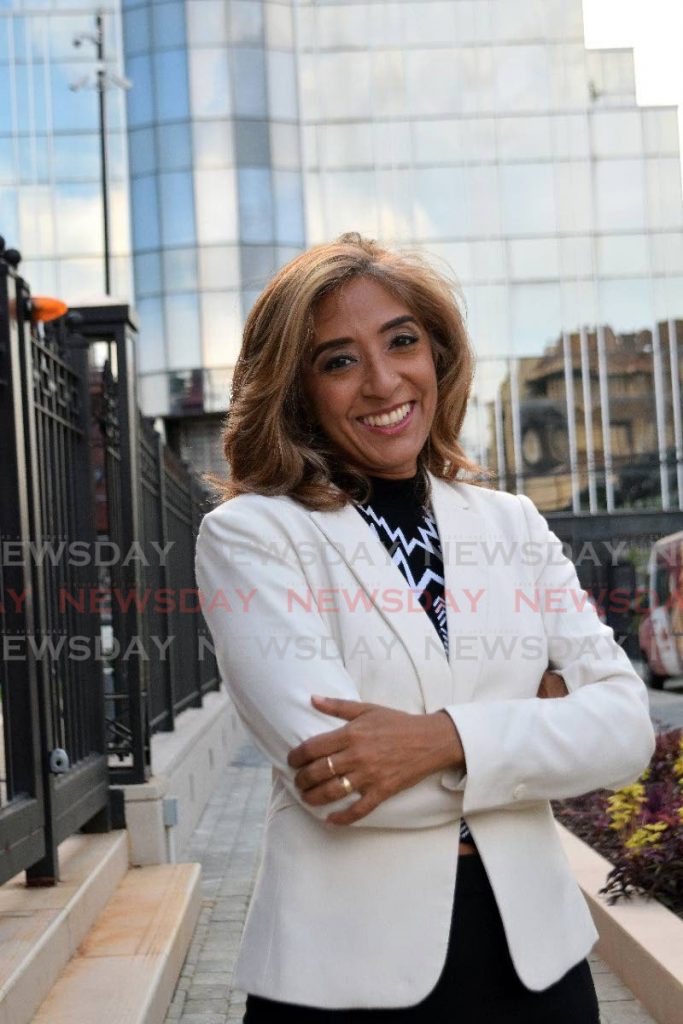Someone always knows

DR GABRIELLE JAMELA HOSEIN
THE THING about sexual abuse and sexual violence is that, in some way, we are all complicit. This is a hard truth we must confront. It’s like those in the field say, someone always knows.
Someone knows the uncle that was inappropriate to one niece, but assumes the experience didn’t happen to others. Someone knows the father who is predatory to her cousins, but assumes her siblings’ safety. Someone knows that a friend’s father tried to kiss her, but never expected he would do it to others until 40 years later, when another teenager tells her story. Someone knows the grandparent whose bad-touch behaviour they experienced, but would never jeopardise her reputation, or that of the family. Someone knows the partner who is abusive, but who he never thought would turn to murder.
Someone knows the taxi driver who impregnated a teenager, but assumed he wasn’t a violent rapist. Someone knows the cousin who tried to rape her, but didn’t tell all the other cousins, thinking maybe it happened to her alone. Someone knows the men who overlook their friends’ behaviour, the explicit photos of barely-18s which they share in the sports team’s WhatsApp group or the teenage prostitutes they eye up in brothels.
Someone knows the guy who sexually harasses new, young women in the office, and spoke to him about his behaviour, assuming that would make it stop rather than move to a different location or victim. Someone knows the powerful men and their sons, the killers and their trail of kidnapped women, and the police who traffic migrant minors for sex.
Someone always knows, but it’s complicated. Those who experience abuse or violence, particularly as children, are more likely to stay silent than tell. They may not understand what happened to them and be left confused. They may have a vague sense that telling would cause trouble and don’t want to be blamed. They may be scared, or they may purposefully or unknowingly forget, sometimes for decades.
Their survival strategy may be never to be alone with that predator, who may also be a family friend, family or a friend. They may tell a peer who agrees to keep their confidence.
Very often, they don’t expect that it’s happened to others or will happen to others, until another victim speaks out or it reaches the police, and we are surprised in our shoes at the reminder that predators, abusers or those who behave in sexually inappropriate ways inevitably do so repeatedly.
What is amazing is how many victims never say a word or never tell their closest friends for decades or never heal, how many remain afraid of what people will say and whether they will be believed, and how many wonder if speaking up might have saved another. Even survivors will likely tell you just one of many stories.
The rest of us keep secrets. For our own self-preservation, out of self-blame, because of love or loyalty, or as an act of sheer denial because we don’t want to know. Maybe we want to keep the peace or keep things in the past. Maybe it’s too messy and we cannot cope. Maybe we don’t take it seriously and think that everyone turned out okay. Maybe these are our friends or family, and everyone knows they are so already. Maybe there was nothing we could do then as bystanders or witnesses, and we remain in that place still.
So many of us have continued to include those whose behaviour should never have been tolerated, denying victims’ credibility and erasing their injury. So many of us have chosen to focus on good memories at the expense of truth. So many of us love and protect predators.
I think about this frequently. The painful stories women friends have told me about those who remain in our midst. The stories in my family about which I have kept quiet.
What is the value of such silence and what is its alternative, and who prepares you for those consequences? I think about this because we seem to believe we can separate predators from ourselves. We talk about ending perpetration. We don’t talk enough about ending complicity.
My argument is simple. Perpetrators of sexual violence, whether sexual abusers nor sexual harassers or rapists, rarely act once, against only one victim. It is rare that others around know nothing of the personality or of other incidents, perhaps even decades ago.
What, then, is our responsibility? For, one of us always knows.
Diary of a mothering worker
Entry 411
motheringworker@gmail.com


Comments
"Someone always knows"